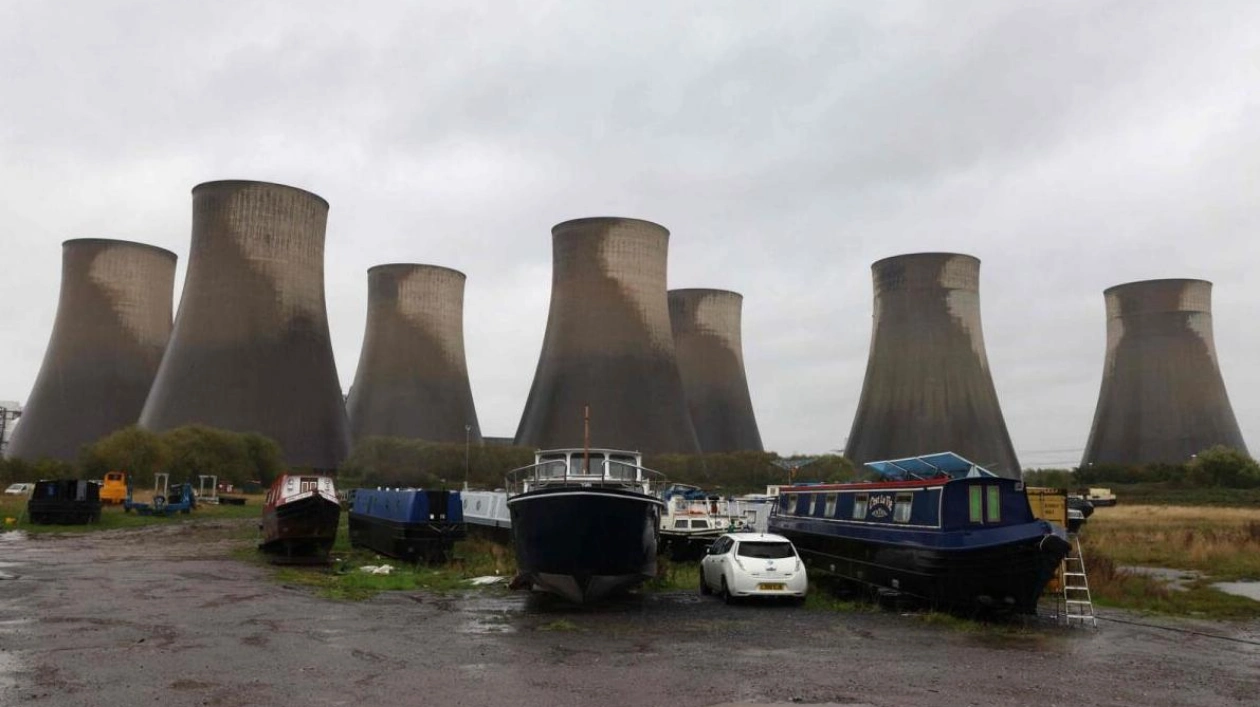A photograph taken on October 1, 2024, depicts a panoramic view of Ratcliffe on Soar Coal-fired power station in Nottinghamshire, central England. The UK’s final coal-fired power station ceased operations on September 30, marking the end of a 60-year run. — AFP
On Thursday, the UK government revealed plans to enact legislation prohibiting new coal mines, as the Labour administration intensifies its efforts to position Britain as a leader in clean energy. The government intends to introduce the new law to limit future licensing of coal mines "as soon as possible," characterizing it as a "vital step" in addressing climate change. Environmental organizations applauded the decision, which follows the closure of Britain's last coal-fired power station, Ratcliffe-on-Soar, in October, making the UK the first G7 nation to eliminate its dependence on fossil fuels for electricity.
In a significant ruling in September, British courts revoked a permit granted by the previous Conservative government for a project in Whitehaven, Cumbria, which was set to become the country's first new coal mine in three decades. The mine would have exclusively produced metallurgical coal used in steelmaking. Energy minister Michael Shanks stated that "ending coal power" would "clear the path for a clean, secure energy system that safeguards consumers and fosters a new generation of skilled workers." Friends of the Earth climate campaigner Tony Bosworth hailed Thursday's decision as "excellent news," adding that it "should finally relegate coal to the annals of history."
Coal, which once accounted for approximately 40% of the UK's electricity supply in 2012, now contributes zero percent, according to the government. Researchers reported on Wednesday that global carbon dioxide emissions from oil, gas, and coal reached a new record high this year. The Labour party, which won the July general election, pledged to be more ambitious in policies aimed at meeting Britain's climate change commitments, including decarbonizing the electricity grid by 2030. Prime Minister Keir Starmer, speaking in Baku, Azerbaijan, for the UN climate change summit, announced that the UK aims to reduce greenhouse gas emissions by 81% from 1990 levels by 2035, as part of the government's plan to achieve net-zero emissions by 2050.
At the summit, nations committed to "transition away" from fossil fuels and aim to limit global warming to 1.5 degrees Celsius above preindustrial levels. This commitment comes as research published Wednesday indicated that planet-warming carbon dioxide emissions from oil, gas, and coal reached a new record high this year. In Britain, the centre-left government has also lifted a ban on new onshore wind projects—previously imposed by the Conservatives—and halted new oil and gas exploration licenses in the North Sea.
Source link: https://www.khaleejtimes.com






